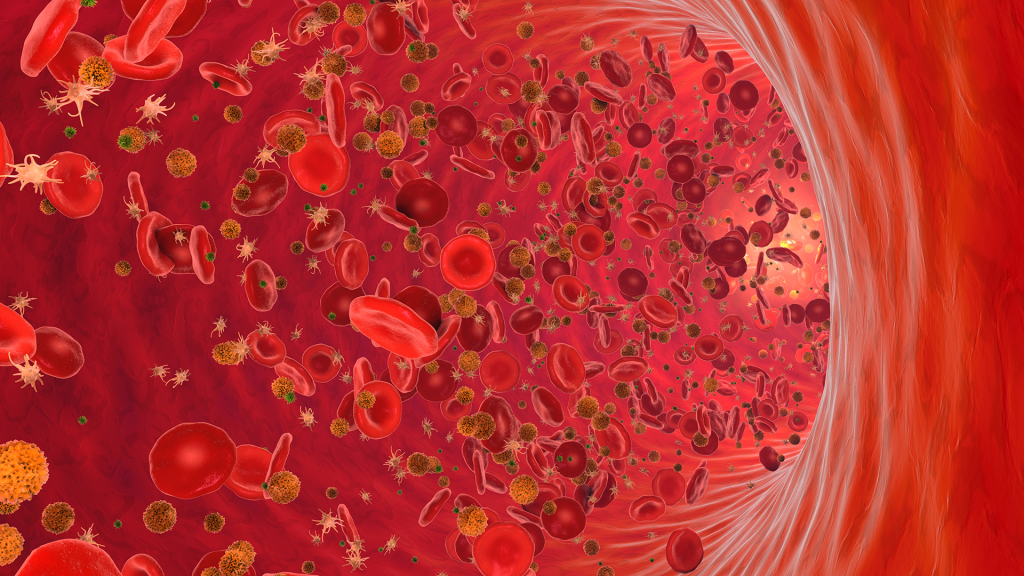-
Individualized Medicine
Innovative blood analysis technique reveals insights into giant cell arteritis

Mayo Clinic researchers have identified key protein patterns in the blood that could improve how doctors diagnose and monitor giant cell arteritis, a chronic autoimmune disease that causes inflammation in blood vessels. The condition often affects arteries in the head and can lead to vision loss or stroke if untreated.
The new research, led by Jaeyun Sung, Ph.D., and Kenneth Warrington, M.D., lays the groundwork for more accurate diagnosis and personalized treatment approaches.
In the study, published in Annals of the Rheumatic Diseases, researchers analyzed more than 7,000 proteins from blood samples collected from patients with giant cell arteritis and healthy people. This large-scale analysis, known as proteomics, allows scientists to study the full range of proteins in a sample and identify distinct patterns associated with disease activity. The researchers used these patterns to develop machine learning models that helped them distinguish between active and remission states with over 95% accuracy.

"In our study, we used high-throughput proteomics to help us analyze thousands of proteins simultaneously," says Dr. Sung, a computational biologist at Mayo Clinic Center for Individualized Medicine's Microbiomics Program. "We also applied machine learning to help us uncover patterns within these large datasets. This approach has provided us with deeper insights into the biology of giant cell arteritis and brings us closer to developing biomarker panels that could improve diagnosis and treatment."
Dr. Sung specializes in developing computational models that connect biological processes to health outcomes. His expertise lies in multi-omics, which integrates data from proteins, genes and other biological markers to uncover patterns in chronic diseases. He is dedicated to turning these discoveries into practical tools that clinicians can use to improve patient care. He recently developed a computational tool to help specialists analyze the gut microbiome to provide insights into overall well-being.
Precision through proteomics
Symptoms of giant cell arteritis, such as headaches, jaw pain and fatigue, overlap with many other conditions, making an accurate diagnosis challenging. The disease primarily affects older adults and can lead to serious complications if not treated promptly. Doctors typically rely on common inflammation tests, but they lack the specific information to confirm a diagnosis of giant cell arteritis. As a result, many patients experience delays in receiving treatment.

Using proteomics, the researchers gained crucial insights into when the disease is active and when it’s in remission. This knowledge helps doctors not only determine when to begin treatment but also when it may be safe to pause medication.
"This precision enables us to refine treatment decisions," says Dr. Warrington, a rheumatologist and Director of the Vasculitis Clinic in the Division of Rheumatology in the Department of Internal Medicine. "Recognizing when a patient's disease is in remission allows us to reduce reliance on certain medications, which can minimize side effects and improve overall patient care."
Dr. Warrington's research focuses on identifying diagnostic biomarkers and understanding the molecular mechanisms behind vasculitis conditions. With extensive experience in clinical trials, he is dedicated to translating his findings into therapies that improve patient outcomes.
Next steps in research
The researchers plan to next test these protein markers in larger, more diverse patient groups to ensure the findings are reliable. They also aim to compare the results with other inflammatory diseases to confirm the markers' specificity to giant cell arteritis. Future research will explore other biological data, such as gene expression activity, to further enhance our understanding of the disease.
Review the study for a complete list of authors, disclosures and funding.
Related Articles







